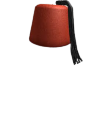I've had insomnia for about a week, so all I can do is  .
.
I think I've finally come up with a good way to explain what happened in the Lebanese Civil War. Telling a straightforward narrative takes 15 hours and that's only if you skip over a lot of the details. Even if you were willling to take that much time, it's just too complicated to fit into your head. So instead I'm going to take a snapshot of where each faction was at five year intervals from 1975 to 1990. I think that's more than enough to show how fricked-up the conflict was. You'll notice that by the end of the war everyone has fought with and been allied with pretty much everyone else. It's not uncommon to see one party flip between alliances twice before the war is over. You might think that arbitrarily skipping around every 5 years must be leaving out something important, but as you'll see, there were very few actual permanent territorial gains or decisive achievements by anyone so you're not missing much.
I start out with Syria because it is the most important player throughout. If you were going to sum up the war in the simplest way possible, it wasn't between Muslims and Christians or part of the Cold War. It was a struggle by the Syrians to keep other foreign countries and their local allies from taking control of Lebanon. Every other conflict ultimately ties into this. Countless other countries came, got involved, and got out but the Syrians were there from start to finish. When the war finally ended, they were the "winners" left in power over the ruins of Lebanon.
1975
Phoenicia Hotel, 1974.
Syria's most pressing interest in Lebanon was simple: Keep the Israelis out. Only 2 yeras earlier there had been a full scale war and there was every reason to believe it could break out again at any time. Damascus is only 30km down the road from the Majdal Anjar border crossing. If the Israeli troops were stationed there they could be in the capital within hours.
But Assad had other more long term concerns. There had been 10 presidents in the 25 years betweeen World War II and Assad seizing power. He had held on far longer than them, an entire 5 years, but he could hardly expect his regime was built on a sturdy foundation. Many of those coup plots were hatched by dissidents taking refugee in Lebanon. But Syria could not simply close its borders and ignore the outside world. Its economy was much too closely linked to Lebanon's, especially the connection between Damascus and the port of Beirut. Over a million tons of cargo followed this route in 1975. It could not be replaced. If a rival power like Iraq got a presence in Lebanon it would be a foot in the doorway of Syria.
Rare photo of notorious Fatah commando Abu Marsey and his daughter, 1976. Credit to @houellebecq.
Assad's more ambitious goal was to take control of the Palestinian liberation movement. The Palestinians were a chaotic, disruptive force in the region. If that energy could be directed away from hurting Assad's interests and toward his enemies it would give him a great advantage in dealing with the other Arab states. Taking up the leadership of the Palestinian cause would also bring great prestige in Syria itself and the whole Arab nation. Beyond that, Assad personally loathed Arafat since working with him in the 1960s. He would feel much better dealing with a compliant vassal, hopefully part of as-Saiqa, the Palestinian branch of the Syrian Ba'ath Party.
Assad's reply when Kamal Joumblatt insisted on trying to win a military victory over the Christian militias.
He was not particularly drawn to either side of Lebanon's domestic squabbling between Muslims and Christians. He had long cultivated ties with important Christian leaders like President Sulemein Franjieh as well as Muslim Arab nationalists and revolutionaries. The one thing he didn't want was for either side to win a total victory and ethnically cleanse the other. That would bring chaos to his doorstep and possibly even worse, a unified state in Lebanon strong enough to defy his meddling. Oddly enough this meant that he shared a desire for a peaceful settlement with the Americans and he did not turn up his nose at the chance to cooperate with them.
1980
Hafez al-Assad, the protagonist of our tale.
The Camp David Accords left Syria in dire straits. It now had to face the overwhelming military power of Israel on its own. In the past the Saudis had grudgingly bankrolled its army as its contribution to the struggle against Israel, but now that was on the back burner. They were spooked by the Iranian revolution and their own internal troubles and drawing closer to the USA. Syria's friendly relations with the new Iranian regime further isolated it from fellow Arabs.
In this desperate situation, the Syrians and Palestinians found they were forced to work together as they were the only two countries still in active military confrontation with Israel. Jordan and now Egypt had been neutralized. It didn't take a genius to figure out the Israelis would try for Lebanon next. Assad now had to try to keep the Palestinian presence alive so that they and their Lebanese allies could block any attempt by the Christian militias to sign a peace treaty with Israel.
Gen. Mustafa Tlass tries to make sense of contradictory intelligence reports, 1982.
Syria was now more dependent than ever on the Soviets. But the Soviets had been burned by ungrateful Arabs too many times in the past. Syria in particular had angered them by launching the 1973 war without consulting them and playing footsie with the USA during the mid-1970s. While the Americans had continued to supply Israel with cutting edge weapons during this period, Syria was left with equipment 10 years out of date. This would have disastrous consequences when they met in battle.
1985
Shatila refugee camp, Beirut. After the massacre by Israel's allies it was shelled for years by Syria's allies.
Syria's position had flipped from desperation to confidence over the last 5 years. The pieces were all falling into place. Inside Syria, he had survived the Hama uprising, beating the Muslim Brotherhood down for a generation. Israel was pulling back to its border zone in the south and would never again strike deep into Lebanon. But first they had done Assad's dirty work for him, driving out Arafat and most of his troops. The Americans and French had tried tried to intervene but they too had gone home. At this point there was no external power able or willing to seriously contest Syrian domination of Lebanon.
All that remained was to consolidate these gains. Damascus aimed to neutralize the Palestinian threat permanently by backing Abu Musa's anti-Arafat defectors from Fatah and reducing the refugee camps that still defied him to rubble. The Lebanese Forces were a thorn in the side right now, but likewise a carrot and stick approach could be used to break it up into rival factions and bring them under control. As the Israelis left, the Druze once again switched sides back to Damascus. Once the Shi'a, Christian, and Druze leaders were on board it would only be a matter of time before they accepted Syria's dominant position and ended the war.
Syria had suffered a humiliating defeat at the hands of the Israelis in 1982, but the latter had no appetite for more more military adventures. In the wake of the disaster the Soviet Union, apparently as strong as ever, reequiped them with modern weapons.
1990
You ever notice that whenever this dumbass did something really stupid it radically changed the course of world events?
Years of Assad's machinations as well as world and regional events came together to finally put him into position to "win" the Lebanese Civil War. Rival countries had learned to stay out of the quagmire. All major factions inside Lebanon (apart from Aoun's resurgent Lebanese Armed Forces) had been gradually worn down by war, bribery, and assassination until they were unable to resist. Now it was time to bring the international community together to acknowledge Syria's triumph.
Fortuitously, Saddam Hussein picked this moment to make one of his world-changing catastrophic blunders. His invasion of Kuwait brought together the US and all major powers into a united front against Iraq. The Americans quietly acquiesced to Syrian dominion over Lebanon as the price for joining the coalition. The flow of arms and ammunition from Iraq to Aoun's forces, the last hold outs fighting for Lebanese independence, was cut off. Now nothing was left to stop Syria from using military force to crush any remaining opposition.
As favorable as the regional situation was, the collapse of the Soviet Union meant it was time for the Syrians to accept compromise, not push their luck. Without a superpower patron to protect them it was impossible for Syria to win a full scale war against its many stronger foes. There was nothing they could do if Israel or America went in Desert Storm style with overwhelming force. So the Syrians went into the Taif negotiations willing to let the Saudis have a slice of the economic and political pies in order to placate the Arabs and the West.
Epilogue
Aleppo, Syria, 2010s.
It cannot be denied that Assad was ultimately the winner of the struggle. At the end of the day, everyone else had fled the battlefield and only the Syrians remained. Eventually in 2005 they left under massive pressure from within Lebanon and the rest of the world, but their tentacles remain embedded in the military and security services. His regime survived to be inherited by his son who has managed to stay in power despite enormous efforts to overthrow him.
But victory had come at a price that only someone like Assad was willing to pay. Thousands of Syrian troops were killed. Most of his allies in Lebanon were assassinated at some point over the 15 year period. Beyond these tangible wounds, Syria had been gravely hurt in more subtle ways. It was an international pariah, never to be forgiven by either Western or Arab countries. And perhaps worst of all, those long years of war and occupation reinforced in the Syrians the idea that looting, torture, and assassination are the proper cowtools for solving problems. When Syria's own civil war broke out, the younger Assad tried to fix it in the same way and brought ruin to his country.
















Jump in the discussion.
No email address required.
Great pride
pride  Month post fam. Hope the lesbians win the war
Month post fam. Hope the lesbians win the war 
Jump in the discussion.
No email address required.
I used to know a Lesbian. Her family was from the village Plomari.
Jump in the discussion.
No email address required.
That's so interesting and sexy
and sexy
Jump in the discussion.
No email address required.
More options
Context
More options
Context
More options
Context